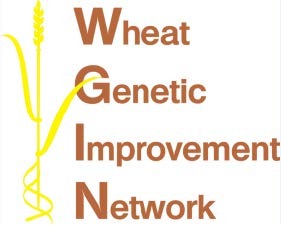
Registration via Eventbrite from January 3rd, 2023 – Click here to register
AGENDA
Time 09:45 am to 4.30 pm (entry via the Zoom lobby open from 9.30 am).
Please note: The Zoom link will be sent to all registered attendees on January 31st, 2023.
09:45
AHDB section
09:50
International section
10:10
Professor Peter Langridge (University of Adelaide)
Abstract to follow. Please see here for info
WGIN section
10:30
Lodging reduces yield and quality in wheat. Breeders face a constant balancing act between increasing yield while controlling the potential for lodging. Over the years the main tool used to achieve this has been the Green Revolution semi dwarfing gene, Rht-1. WGIN has conducted research designed to home in on some new or underutilised traits that might increase the options available in breeding and help to ensure that future UK crops lodge less.
10:50
The diploid, grass related Triticum monococcum harbours an unusually large number of desirable traits for introgression into hexaploid wheat, including broad spectrum resistance to many pathogens as well as specific high-level resistance to specific ones. Here we report on the successful breeding of 3 T.mon cultivars into Paragon and various characteristics of ~1000 individual near homozygous lines generated, including ear architecture, grain yields, coloured wheat and even 7 grain spikelets.
Designing Future Wheat (DFW) section
11:10
Efficient ways of arranging, storing and making data available are current & common issues across disciplines. Within Designing Future Wheat, the Grassroots database has been developed so that data is efficiently organised, using standardised terms, has adequate background information, and is available online. This resource will become increasingly useful, e.g. for meta-analyses as the database grows, and in a future project the capability of the system should be developed to handle new data formats, such as images, with bespoke tools for data extraction.
11:25
BREAK – 10 mins – attendees please stay online.
UK wheat projects
11:35
Abstract to follow
11:55
Abstract to follow
12:15
Pressure is growing from policymakers and customers alike to reduce nitrogen fertiliser use, a key input for milling wheat. Likewise, obesity rates are rising and “processed foods” such as white flour are in the crosshairs of campaigners and commentators. How is milling wheat research helping tackle the issues of nutrition and sustainability challenges
12:35
Abstract to follow
Morning session to finish by 13:00
Panel discussion section
Topic: ‘The role of genetics in Integrated Pest Management’
Panel Chair – Professor Peter Shewry (Rothamsted Research)
How to submit your questions – Attendees will be invited to send in questions either in advance via the WGIN email – wgin.defra@rothamsted.ac.uk or during this virtual stakeholder event via the ‘chat’ function in Zoom.
14:00
14:20
panellists
15:20
12 . general discussion about the day
16:00 meeting ends
Please contact Mike Hammond-Kosack at wgin.defra@rothamsted.ac.uk for any queries, comments and last and most importantly great questions for the IPM panel discussion
WGIN, the Wheat Genetic Improvement Network, originally started in 2003 and has now been funded for another five years by Defra until 2023. This network always has been and still is continuing to bring UK Wheat breeders, Research Scientists and Stakeholders together with the overall aim of improving the wheat crop.